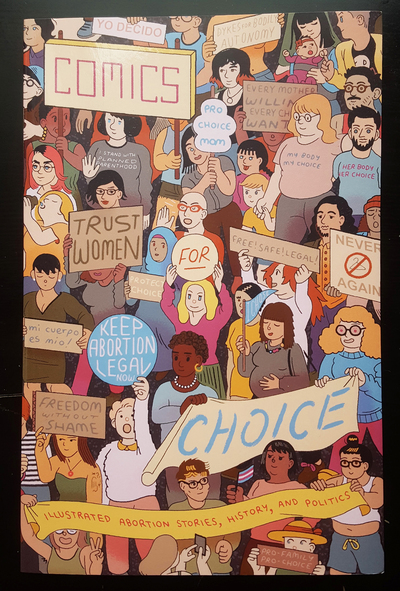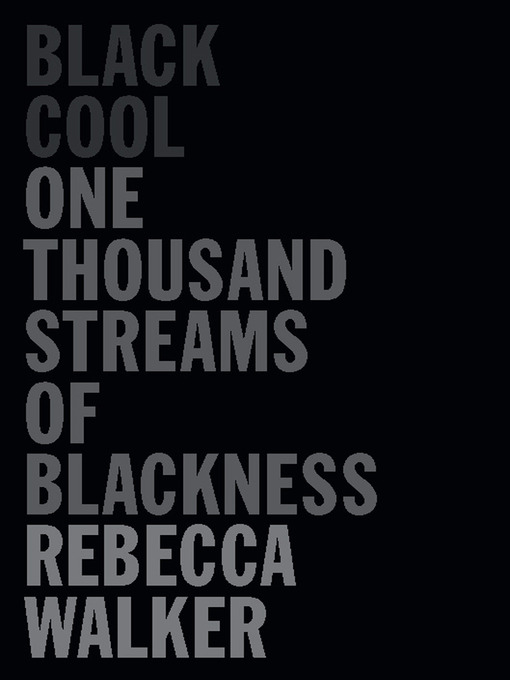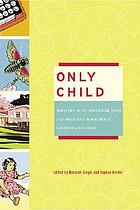Tagged with anthologies
Black Cool: One Thousand Streams of Blackness
book type:
recommendation:
The Letter Q: Queer Writers' Notes to Their Younger Selves
author demographic:
free:
medium:
Beyond Belief: The Secret Lives of Women in Extreme Religions
I'm interested in the topic and would probably read a full-length work on most of the authors' lives in extreme religions, but the short essay doesn't work. The cover is pretty, and a lot of the writing is good. And there are some good quotes. I like how Naomi J. Williams characterizes her parents' disgust with "church-hoppers," as "ecclesiastically promiscuous."
author gender:
book type:
Love, InshAllah: the Secret Love Lives of American Muslim Women
Twenty five Muslim women, most of them pretty observant, many of them converts, share their love stories. To a heathen like me the mystery of these women's lives isn't Islam; it's their devotion to it. Maybe I was expecting some secular Muslim contributions, but that was probably dumb. Anyway, the women's tales are heartfelt and straightforward. Surprises include the two chapters written by lesbians and the matter-of-fact and reasonable sounding appeal of polygyny.
author gender:
book type:
medium:
author demographic:
Only Child: Writers on the Singular Joys and Solitary Sorrows of Growing up Solo
If you read anthologies (or comp zines) you know that they're always uneven in quality and focus. The most common thread I found in Only Child, both thematically and content-wise is a self-consciousness. There are more than the usual amount of asides, parentheticals, and explanations, which I think makes sense for people accustomed to having so much attention aimed their way. Many of the writers cited having all of their parents' love and affection to themselves as a childhood experience. I know when eyes are on me I feel more self-conscious, like if the Pilates class instructor praises me, I inevitably mess up the next exercise, as if to show that I'm not special, I'm the same as everyone else. But of course no one cares. In Pilates you're not looking at anyone else. That is one place where navel gazing is not only okay; it's the rule. Same with these only child authors, but they haven't had siblings beat "no one cares" into them, lucky dogs.
author gender:
medium:
book type:
Zine Yearbook 9
I am happy to have this book to point to whenever anyone asks me, "But are people still making zines?" The answer, with about 100 zines published in the last year excerpted and another 75 or so listed as honorable mentions, is an emphatic "Yes!" I loved seeing the zines, reproduced as closely as possible to how they originally appeared, but even more, I was inspired by Katie Haegele and Cindy Crabb's loving introductions. And I gotta say the Zine Libraries Index Julie Turley and I contributed is also pretty hot.
I love zines. Dreaming them up, physically constructing them, and bringing them to the post office all snug in their packages makes me feel whole in a way not much else does. … The medium of zines reminds me of the point of the work: the deep and sincere need to be heard, the yearning for communion. I sign most of my zines "love, Katie" as though they're letters because they feel a lot like letters. I mean, I wouldn't bother saying something if I didn't think there was someone to say it to. … The connection people make with each other through writing and reading is as human as we get, and zinesters know this, they live it. I'm writing this now and you're reading it in another now, which means we're here together in a way; wherever we are, we're both crackling with the same kind of life. --Katie Haegele, Introduction, p.1
Zines were how we learned to exist outside ourselves when the world told us to disappear. …
It was the hand touching hand as the zine was passed between you. …
It was about creating real physical connection in the face of nothingness. It was folded well loved pages falling apart and holding you together, kept safe in your pocket as you rode the train under the bay from Oakland to San Francisco, and knowing that there was someone else out there, someone you met in passing for a second who had given you this gift who had secrets like your own. And that you weren't alone. –Cindy Crabb, Introduction, p.1-2.
It's hard not to acknowledge that zines are best for their immediate, ephemeral qualities. That feeling that you've found something truly unique and special, from a seemingly unlikely source. For these reasons, putting zines in a mass—produced book is seemingly contradictory. …
Every day we are told that print is dying, but as our co-worker Chris says, "If print is dead, it's another reason to like zombies." –Joe Biel, p.6
medium:
recommendation:
book type:
Half and Half: Writers on Growing Up Biracial and Bicultural
The table of contents reveals some favorites from the past: Julia Alvarez, James McBride, Lisa See, and Danzy Senna.



